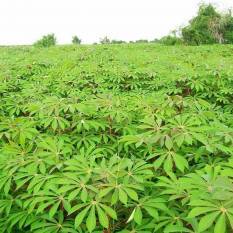THIRUVANANTHAPURAM, 18 June 2021: The ICAR - Central Tuber Crops Research Institute (CTCRI) in Srekariyam has obtained a patent for an organic pesticide developed from the leaves of the tapioca plant.
The patent was given for the technology to extract the essence of pesticide from the biowaste of tapioca and the machine for manufacturing it.
The patent, which is valid through 2032, has been given to the Indian Council of Agricultural Research (ICAR) and the State Council for Science, Technology, and Environment which funded the project. Currently, pesticides branded as Nanma, Menma, and Shreya are developed from tapioca waste and are distributed to Krishi Vigyan Kendra (KVK).
A team led by Dr. C A Jayaprakash, principal scientist at CTCRI, started the experiments for this in 2008 and developed a machine with the help of the Vikram Sarabhai Space Centre (VSSC) in 2010 and then manufactured the organic pesticide.
Up to seven tonnes of stems and leaves are collected from a 1-hectare tapioca farm. The cattle that consume tapioca leaves die due to the presence of a chemical compound known as Cyanogen on it. This compound is used as a pesticide.
About eight litres of organic pesticide can be produced from 1 kilogram of tapioca leaves. This organic pesticide gets rid of pests more effectively than chemical pesticides. However, it causes no harm even if spilled on skin or smelled.
CTCRI director Dr. M N Sheela said that they have signed an MoU with the Bhabha Atomic Research Centre (BARC) for extracting the molecules from the residue after producing the pesticide. The Defence Research and Development Organisation (DRDO) has converted the pesticide into gas form.
The works to manufacture gas for using the godowns of the Food Corporation of India (FCI) is progressing. Also, there are plans to make cooking gas with the help of IIT Delhi. Currently, the pesticide is manufactured on small scale with the help of KVK. If companies come forward to manufacture it on an industrial scale, we will take steps for that, Dr. Sheela added.
Image credit: india.tradeford.com























